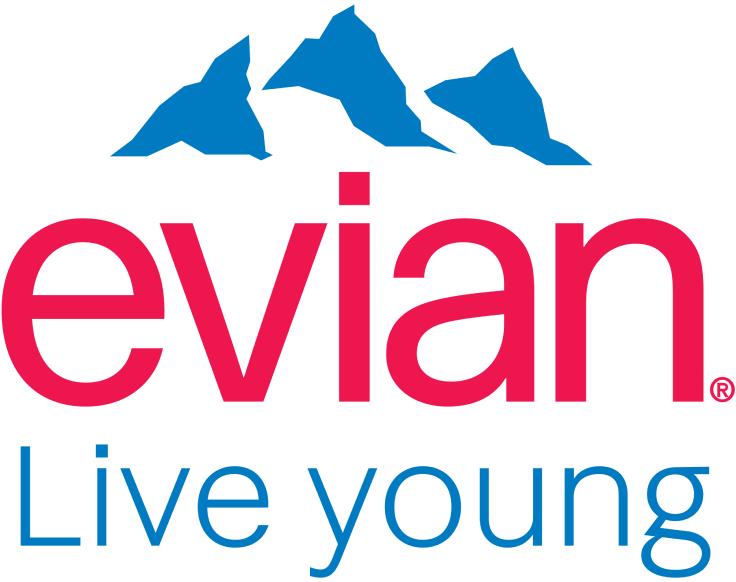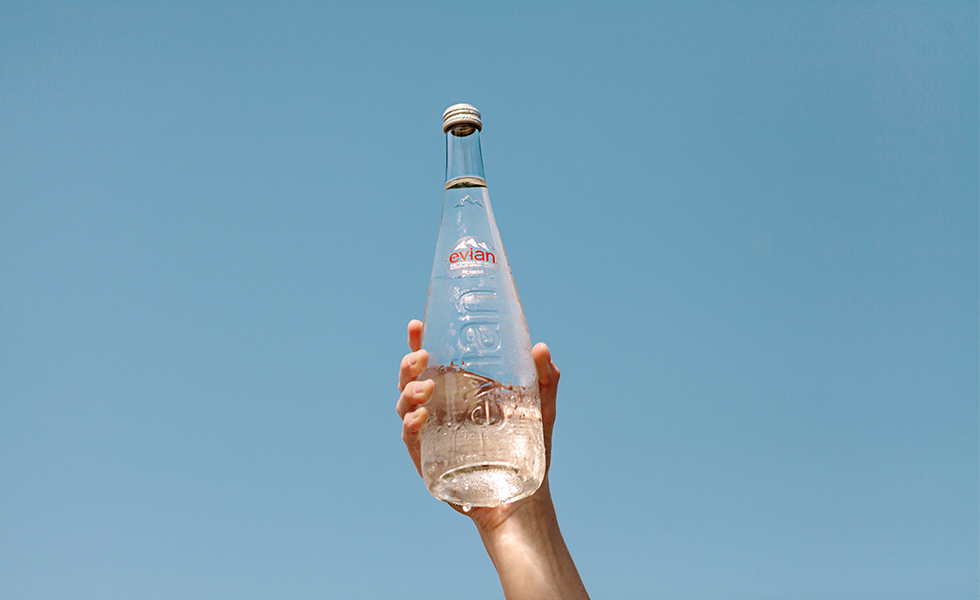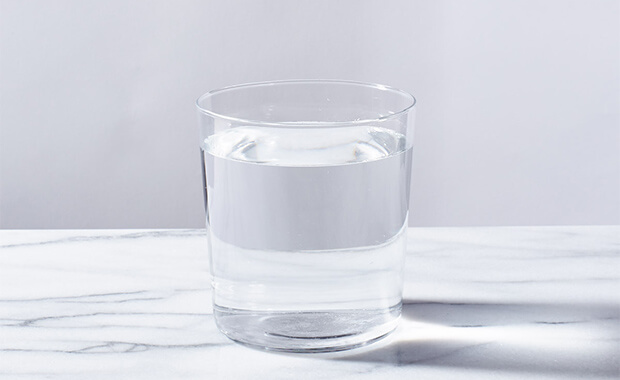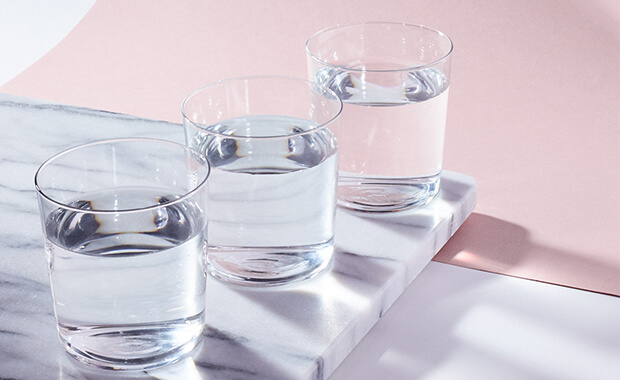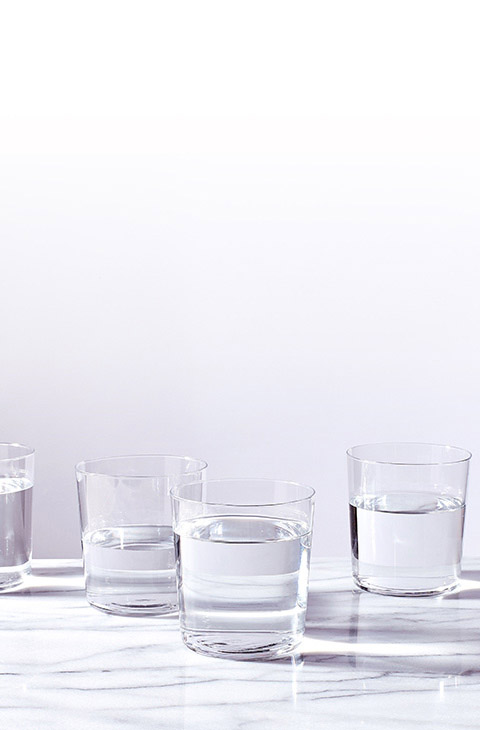
If water is essential to life, then proper hydration is essential for living well.
Introduction
Because our bodies are made up of around 60% water, a hydrated body is a healthier body*. And though drink options may be plentiful, it just so happens that nature provides us with the best hydration option – plain water – in pure abundance. Water isn’t only the healthier drinking option, but it’s the best form of hydration because it provides fluid without extra, unnecessary additions like sugar.
*European Food Safety Authority (EFSA) experts have validated that water contributes to the maintenance of normal physical and cognitive functions (at least 2.0L of water, from all sources, should be consumed per day)
Everyone – and we do mean everyone – needs water throughout every stage of life, but the right amount to keep you well hydrated can vary. Take a look at the recommendations for the amount of water you should be drinking daily based on age, gender, or throughout pregnancy
| Target Demographic |
|
|
|
|
ADULTS |
WOMEN |
WOMEN |
|
|---|---|---|---|---|---|---|---|---|
|
Recommendation for daily total water intake |
1,1-1,2L | 1,3L | 1,6L |
Girls 1,9L Boys 2,1L |
Women 2,0L Men 2,4L |
2,3L | 2,7L |
Women 2,1L Men 2,5L |
|
water from beverages (estimated 80% twi) |
0,9L | 1,0L | 1,3L |
Girls 1,5L Boys 1,7L |
Women 1,6L Men 2,0L |
2,3L | 2,2L |
Women 1,6L Men 2,0L |
|
NO. OF GLASSES (1 GLASS = 250mL) |
|
|
|
|
|
|
|
|
Hydration for you
Every single thing we do – from opening our eyes in the morning to running a marathon – requires our bodies to work, and because water is one of the most important things our bodies need to support that work, we lose about 2.8L of water throughout the course of an ordinary day. And while this may not sound like a lot, this water must be replaced for us to feel and perform our best.
Nearly half (49%) of all adults don’t drink enough water to replace what’s naturally lost, and could benefit greatly from more water intake on a daily basis. Not hydrating enough can cause unpleasant side effects like *:
● Poor physical performance
● Poor brain or memory function
● Headaches, tiredness, or low mood
The only way to prevent this is through – you guessed it – hydration, like drinking water.
The recommendations outlined on this page are based on a 2019 global scientific literature review.

Hydration for nutrition and the brain

Hydration for nutrition and the brain
A healthy lifestyle doesn’t begin and end with the body alone, it’s equally important that we care for our minds and the function of our brain. Just like our bodies, our brain performs its best when well hydrated*. Even minor dehydration (missing less than 2% of your body’s water) can affect our brain function. Drinking adequate amounts of water can help with our cognitive function.
(Water contributes to the maintenance of normal physical and cognitive functions in order to bear the claim, information shall be given to the consumer that in order to obtain the claimed effect, at least 2,0 L of water, from all sources, should be consumed per day.)

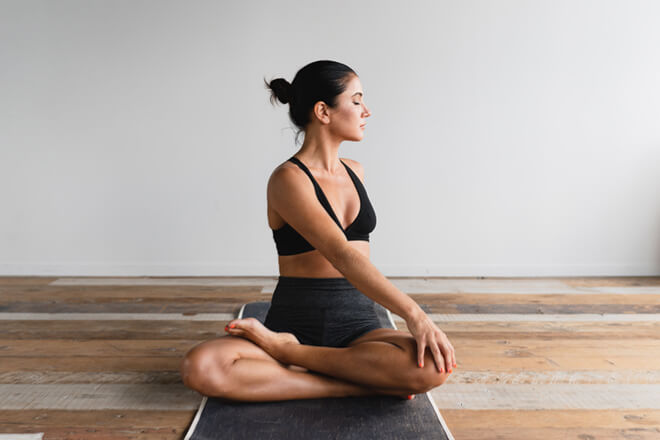
Hydration for physical activity
Everybody is unique, but all bodies – young or old, big or small – need to stay active for optimal health. And in order for our bodies to perform at our best during these activities, we must regulate our body temperatures, which is easier when we’re properly hydrated. Our muscles alone are made of 76% water, so it’s important to hydrate well before, during, and after physical activity.
Why does our body lose water when we move?
During exercise, our heart beats faster and our body temperature increases, which then causes us to sweat, and this sweat is made from our body’s water. The best way to stay hydrated during exercise is to replace the water you’re losing. Drinking water helps us keep our body temperature normal. When your body reaches 39.5°C, you may start feeling fatigue because your brain is trying to protect your body by slowing you down. You can combat heat and its effects on your performance by drinking plenty of water.

Hydration for physical activity
Hydration tip
If you’re not already hydrated prior to exercise, you should slowly start hydrating several hours before the exercise in order to allow the fluids to absorb.


Hydration for mothers and children
Hydration for expectant and new mothers
Pregnancy
During pregnancy you’re not only drinking for yourself, you are hydrating for two. It’s recommended that pregnant women drink water every day during their pregnancy. Because your baby is hydrated by what you drink, so it’s important to make healthier drinking choices like plain, quality water.
Breastfeeding
If you’re a breastfeeding mother, you’re naturally providing the best nourishment for your baby. And to keep things natural, it is best to hydrate the way nature intended – with plain, still water. It’s also important to know that in addition to regular water intake, it’s recommended that breastfeeding women drink 3-4 more glasses of water per day than they normally would.
Hydration tip
In addition to regular intake, it’s recommended that breastfeeding women drink 3-4 more glasses of water per day than they normally would.
From EFSA Scientific opinion on dietary Reference Values for Water (Efsa Journal 2010)

Hydration for mothers and children
Bodies of all ages are largely made up of water, but children have an even higher percentage of body water than adults. This means it’s even more vital for children to be well hydrated so they can feel, think, and perform at their best.
While there are many drink options, pure water is especially good for children ages 5-11 because it hydrates without sugars. And water is especially important to help keep an active child’s body cool during exercise.
Only 31% of children and teens drink their daily recommended amount of water and only 14% of their fluid intake occurs during schooling hours, so many children are entering and leaving school dehydrated. Encouraging your child to hydrate well means they’ll be more alert, have a better attention span, and a better short-term memory. Good hydration fuels a child’s ability to focus and learn.
Setting a good example can go a long way; children of parents who drink water are 38% more likely to also drink water regularly[HF7]. The family that hydrates together, lives healthier together.


Hydration for children
Bodies of all ages are largely made up of water and we are losing a bit of this water each day, but children lose more water through skin than adults relative to their size. So compared to their body mass, children have higher water needs than adults.
While there are many drink options, pure water is especially good for children ages 5+ because it hydrates without sugars.[HF8] And water is especially important to help keep an active child’s body cool during exercise.
Only 31% of children and teens drink their daily recommended amount of water and only 14% of their fluid intake occurs during schooling hours, so many children may be entering and leaving school dehydrated. Encouraging your child to hydrate well means they’ll be more alert, have a better attention span, and a better short-term memory. Encouraging your child to hydrate is a good habit to start with.

Hydration for children
Hydration tip
Set a good example. Children of parents who drink water are 38% more likely to also drink water regularly. The family that hydrates together, lives healthier together.

